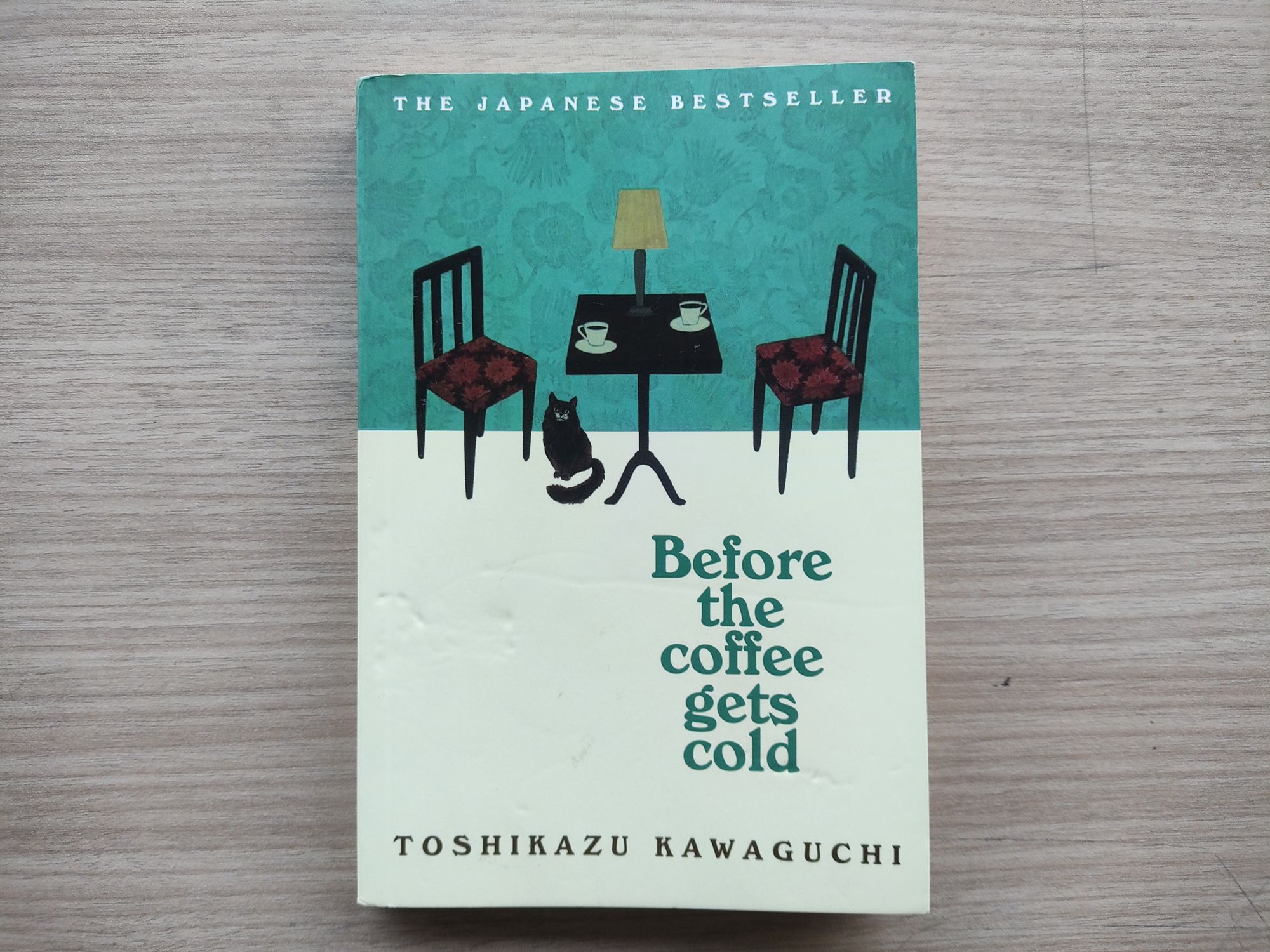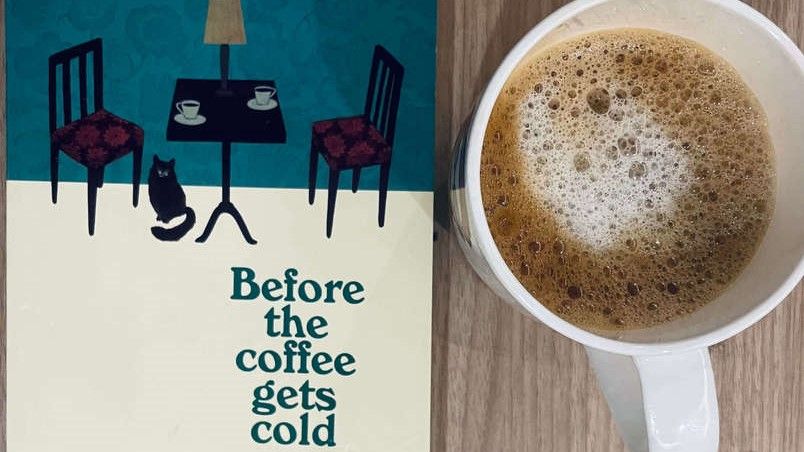Before the coffee gets cold: The Hope of Changing One's Heart
Sometimes all we need is one moment

As Eragon and Nar Garzhvog made their way on foot running from Surda, it is only after 2 days that they take a break and make camp. After a hearty meal by the fire, Eragon leans back and asks his companion to share a story about his people. It was around this time that I stepped away from the book for a bit and stepped into the café to listen to the tales before the coffee gets cold.
I find it hard to believe that it has been 5 months since I last visited. I had stepped away so I could pen my thoughts and finally, when I did, I found myself taken away by the stream of life. I have been often reminded of the fact that a visit is pending, but it was only now that I finally embarked on the journey.

As soon as I entered, I found the café regulars right there where I left them. Hirai, Fusagi, Kohtake, Kazu, Kei, Nagare, and the woman in that seat with the short white-sleeved dress were all waiting for me. This time around I followed a few of the others as they made their choice to travel to the past (and future, sorry minor spoiler) to have that one missed conversation/exchange with their loved one.
Each story features a character who chooses to travel in time and we learn of their stories and why they want to do so. In certain places, seeds for future stories were laid and I couldn't help but wait to find out how it all turned out. At first, what seemed to be an overwhelming number of characters, it soon got fleshed out as the stories progressed and I learnt more about each one of them.
The first story had done a good job setting up the café and its cast of colorful hosts and guests, but having been a while since I read it, I had forgotten a few of the key aspects. However, the author did make sure to remind me of important information that was pertinent to the current story. I would suggest to avoid taking a break like I did and read the book completely to have the proper experience and appreciate the payoff fully.
As I progressed through the stories, I learnt more about the cafe, of which clock tells the right time, of how the cafe was always cool and of the certain air of mystery to it all. Having to witness many a time traveler, the place was well setup to develop a character of its own.
The thick pillars and the massive wooden beam that cut across the ceiling were a lustrous dark brown, like the colour of chestnuts. Mounted on the walls were three large wall clocks.
...
The walls were tan, made of earthen plaster with a wonderful patina of obscure stains that had obviously built up over many years. It was daytime outside, but in this windowless cafe, there was no sense of time. Dim lighting gave the cafe a sepia hue. All this created a comforting, retro atmosphere.
It had been incredibly cool in the cafe, but there was no sign of an air conditioner. A wooden-bladed fan fixed to the ceiling was slowly rotating, but that was all.
Not only did I learn about the cafe, but I found many interesting facts about coffee, coffee beans, the processes one could choose to make a cup, and so much more all delivered in the flow of wherever the situation demanded it (I resist the urge to share quotes from the book of the interesting stuff I learnt).
The cafe's name was Funiculi Funicula. Such a strange name to have! It is named after a Neapolitan song composed in 1880 by Luigi Denza to lyrics by Peppino Turco. It was written to commemorate the opening of the first funicular railway on Mount Vesuvius.
Why choose such a name for a cafe?! A funicular is a type of cable railway system that connects points along a railway track laid on a steep slope. Perhaps since the cafe also serves as a means of travel, only instead of up and down as the song goes, the cafe helps people go back and forward in time.

I found myself lost in time among the stories of the people, who chose to go back in time, just to have that a few moments of contact. Is it even worth it if all you get is a few small moments in time?
‘At the end of the day, whether one returns to the past or travels to the future, the present does not change. So it raises the question: just what is the point of that chair?’
But Kazu still goes on believing that, no matter what difficulties people face, they will always have the strength to overcome them. It just takes heart. And if the chair can change someone’s heart, it clearly has its purpose.
Yes it is, because all it takes is a moment for a change to occur.
